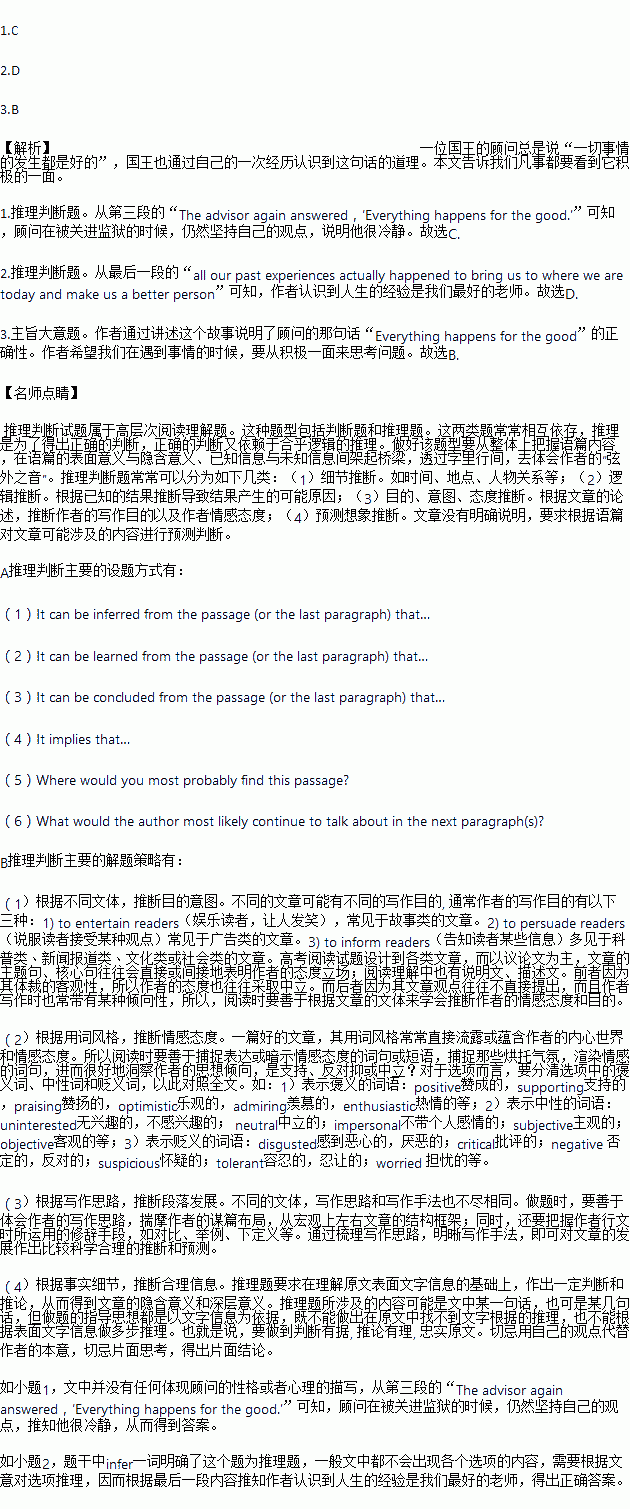题目内容
Once upon a time, there was a king who had a wise advisor. The advisor followed the king everywhere and his favourite piece of advice to the king was “Everything happens for the good.”

One day the king went hunting and had a small accident. His foot was injured. Fortunately he was not badly injured but as always he was forced to ask his advisor what he thought about the accident, to which the advisor replied,“Everything happens for the good.”
This time the king was really angry and put his advisor in prison. The king then asked his advisor,“Now,what do you think?” The advisor again answered,“Everything happens for the good.”
About a week later the king went on another hunting trip. It turned out that the king was caught by some cannibals (食人者) and taken to their camp where he would be prepared to be their evening meal. Before putting him into the cooking pot, he was examined and the cannibals realized that the king's foot was injured. They decided to throw him back into the forests. It is the tradition for the cannibals not to eat anything that was in any way injured.
It is true that everything in our lives happens for a purpose, and most often for our own good. If you think about it, all our past experiences actually happened to bring us to where we are today and make us a better person. So whatever challenges that we may face today, consider it happening to bring us to the next level.
1.When the advisor was put in prison, he was still________.
A. nervous B. angry
C. calm D. upset
2.It can be inferred from the last paragraph that________.
A. everything happens for its own reasons
B. it is unnecessary for us to think about experiences
C. challenges will make you do anything
D. our life experiences are our best teacher
3.By telling the story, the writer________.
A. tells us the danger of hunting
B. wants us to think positively
C. asks us not to hunt any more
D. wishes us to follow others' advice


